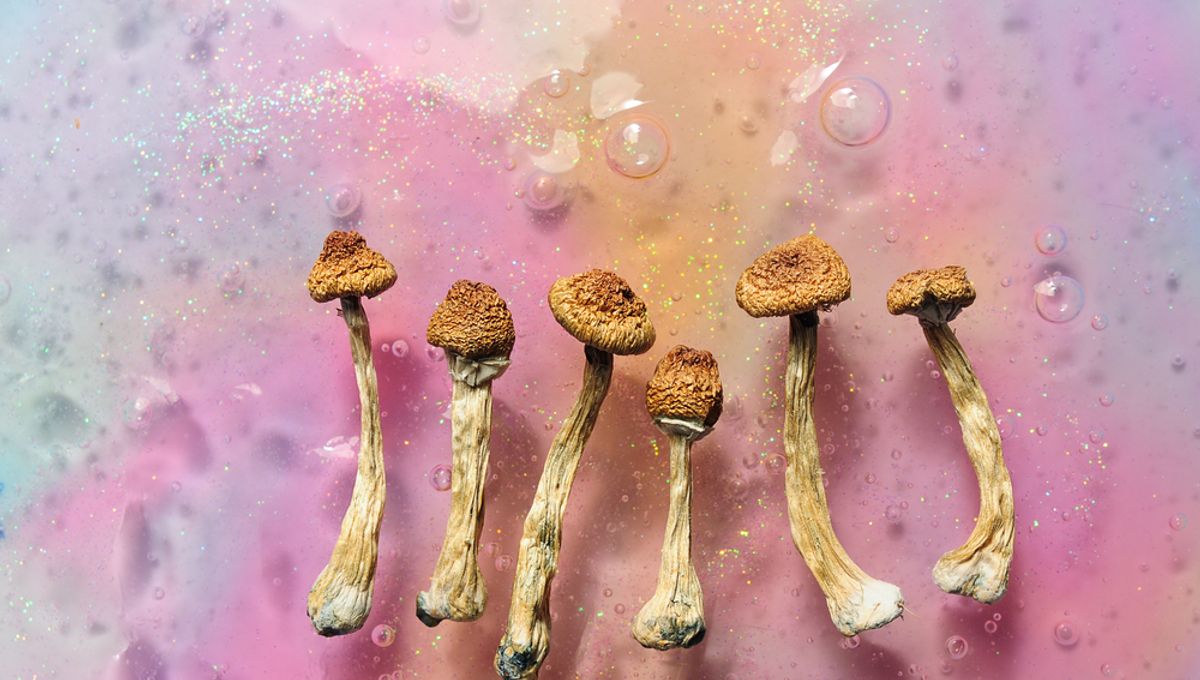
A single dose of psilocybin – the psychedelic compound that puts the “magic” in magic mushrooms – has been shown to significantly reduce the symptoms of depression in people who had previously not benefited from treatment.
In the largest study of its kind to date, scientists from Kings College London studied a group of over 200 people from around the world with treatment-resistant depression. Each was randomly allocated to receive one of a single 25-milligram, 10-milligram, or control 1-milligram dose of psilocybin, alongside psychotherapy.
The participants took the dose in a controlled setting under the watchful eye of a therapist and “tripped” for around six to eight hours, after which the researchers assessed their progress for the following 12 weeks.
The findings showed that people who received the 25 mg dose of psilocybin, but not the 10 mg, had significantly improved symptoms of depression after three weeks compared to those who took the lowest 1 mg dose.
“We saw positive results in a particularly difficult-to-treat group of patients, and the highest dose of COMP360 psilocybin had the greatest impact on people’s depression. This suggests that COMP360 psilocybin has a true pharmacological effect, a finding that is critical for it to be recognised as a new treatment option in the future,” Dr Guy Goodwin, Chief Medical Officer at COMPASS Pathways, said in a statement.
There were, however, some unpleasant side effects reported in the study. At least 77 percent of the participants reported some kind of “adverse event”, such as headache, nausea, and dizziness. This was especially noticeable in the 25 mg group, occurring in 84 percent of those who reported side effects. Thoughts of suicide and self-harm were also seen across all groups, although the average rate of these thoughts didn’t worsen after treatment.
That being said, the results are extremely promising. A number of recent studies have shown the potential for psilocybin to treat depression and other mental health problems, and this latest clinical trial is some of the most robust research yet.
The mechanism of how psilocybin achieves this effect is not clear, but it is known that the compound helps to “loosen up” rigid patterns of brain connectivity associated with depression.
More work is needed to fully understand how this drug affects people and whether it could be a viable treatment for hard-to-treat depression. If all goes to plan, it holds the potential to open a new paradigm for mental health treatment.
“New paradigms of treatment are needed and clinical research of new treatments is important. Psilocybin therapy may be a new paradigm of treatment, but this needs to be tested in clinical trials,” explained Dr James Rucker, co-lead of the psychoactive trials group at Kings and consultant psychiatrist.
The new study was published in the New England Journal of Medicine.
Source Link: Magic Mushrooms' Psilocybin Eases Severe Depression In Big New Study